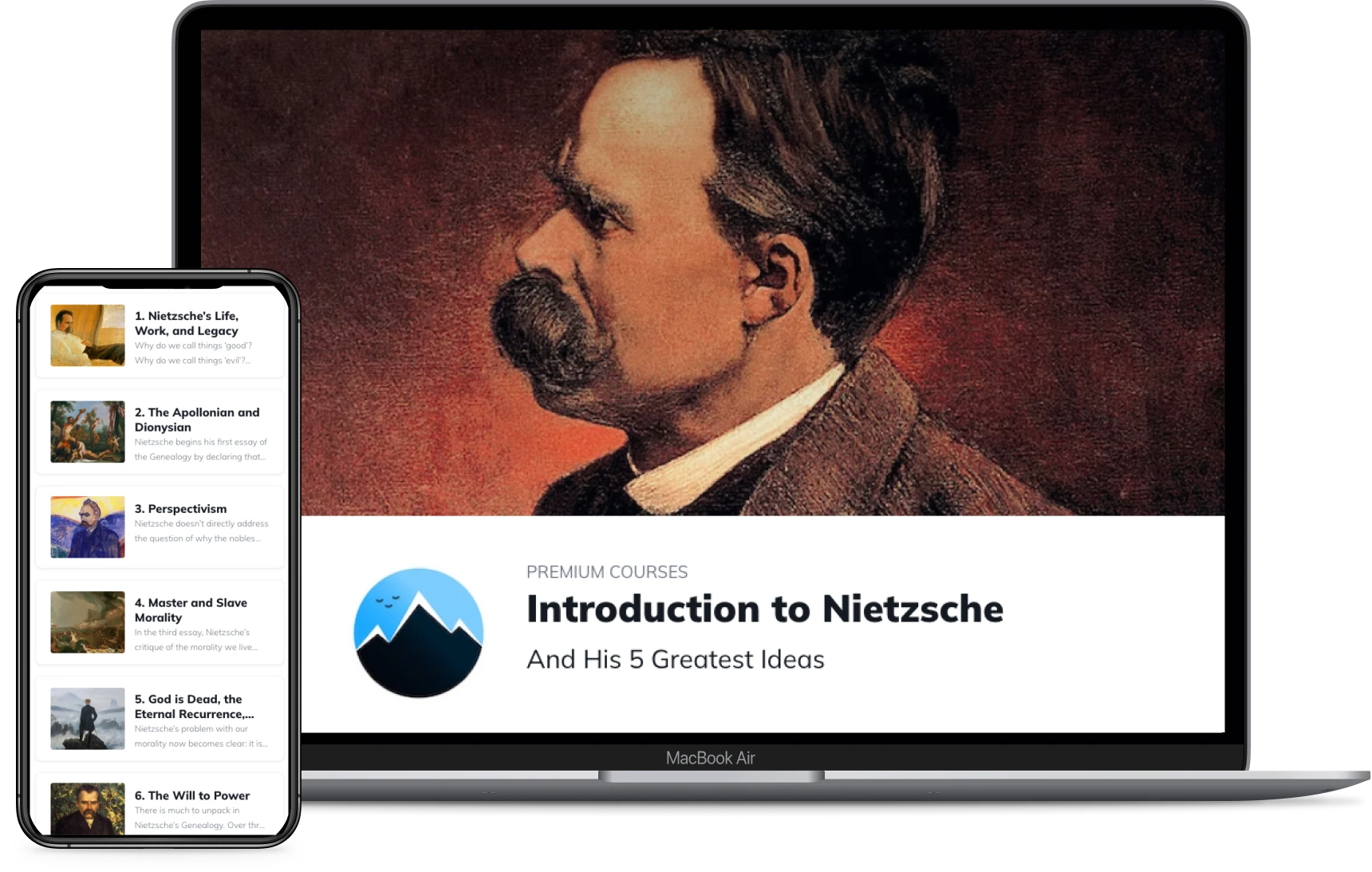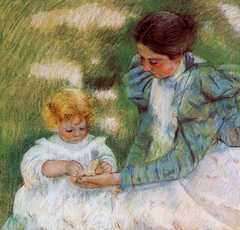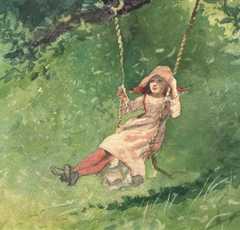
Eternal Recurrence: What Did Nietzsche Really Mean?
Nietzsche’s eternal recurrence is a litmus test for an individual’s capacity to affirm life. Your reaction to the prospect of living every single moment of your life over and over again in sequence is, for Nietzsche, a crucial measure of your ability to become who you truly are.

In the penultimate section of The Gay Science, the same book in which he discusses the death of God, Nietzsche presents his idea of the eternal recurrence — a thought that occurred to him, he reports in his notebooks, while he was on one of his epiphanic hikes through the Swiss Alps.
Offering his idea as a thought experiment, Nietzsche writes:
What if some day or night a demon were to steal into your loneliest loneliness and say to you: ‘This life as you now live and have lived it you will have to live once again and innumerable times again; and there will be nothing new in it, but every pain and every joy and every thought and sigh and everything unspeakably small or great in your life must return to you, all in the same succession and sequence—even this spider and this moonlight between the trees, and even this moment and I myself. The eternal hourglass of existence is turned upside down again and again, and you with it, speck of dust!’
Nietzsche follows up this picture of endless repetition with a challenge:
The question in each and every thing, ‘Do you want this again and innumerable times again?’ would lie on your actions as the heaviest weight! Or how well disposed would you have to become to yourself and to life to long for nothing more fervently than for this ultimate eternal confirmation and seal?
In other words, if you were to discover that every moment of your life, all its joys, all its pains, every rush of excitement and every long day of boredom, was to recur in sequence again and again, was to repeat for eternity — how would you react? Would you be pleased? Would you be crushed? Would it impact how you lived the rest of your life? Nietzsche questions:
Would you not throw yourself down and gnash your teeth and curse the demon who spoke thus? Or have you once experienced a tremendous moment when you would have answered him: ‘You are a god and never have I heard anything more divine.’
The eternal recurrence is a litmus test for our capacity to affirm life
Considered as a thought experiment, the eternal recurrence thus amounts to, as Daniel Came puts it in his essay The Birth of Tragedy and Beyond (which features in The Oxford Handbook of Nietzsche), a “litmus test of an individual’s capacity to affirm life.”
John Kaag, in his book Hiking with Nietzsche, concurs:
Nietzsche suggests that the affirmation of the eternal return is possible only if one is willing and able to become well-adjusted to life and to oneself… The specter of infinite monotony was for Nietzsche the abiding impetus to assume absolute responsibility: if one’s choices are to be replayed endlessly, they’d better be the ‘right’ ones.
And, while we might be tempted to look externally to judge what is ‘right’, for instance at given moralities, religions, or conventions, the point of the eternal recurrence is that only by being truly authentic to ourselves, only by finding, choosing, and being responsible for own paths could we possibly ever affirm or approve of our lives.

Your Myth-Busting Guide to Nietzsche & His 5 Greatest Ideas
From God is dead to the Übermensch, learn everything you need to know about Friedrich Nietzsche with our concise online guide.
Get Instant Access★★★★★ (50+ reviews for our courses)
As Kaag concludes: “Only when one realizes this is he or she prepared to face the eternal recurrence, the entire cycle, without the risk of being crushed. Only then is one able to say with Yeats, ‘And yet again,’ and truly mean it.”
What gives you meaning? What makes you happy? What brings you fulfillment? What story do you want to live, over and over and over again?
Nietzsche, for instance, expresses what the eternal recurrence inspires in him, declaring elsewhere in The Gay Science (in a typically compelling statement that features in our list of Nietzsche’s best quotes):
I want to learn more and more to see as beautiful what is necessary in things; then I shall be one of those who make things beautiful. Amor fati [love of fate]: let that be my love henceforth! I do not want to wage war against what is ugly. I do not want to accuse; I do not even want to accuse those who accuse. Looking away shall be my only negation. And all in all and on the whole: someday I wish to be only a Yes-sayer.
(For more here, see my explainer on what Nietzsche and the Stoics mean by amor fati.)
The eternal recurrence: how could we possibly ‘affirm’ awful events?
We might wonder how we could possibly affirm something like the untimely death of a loved one or friend, or a tragic accident that kills hundreds of people, but perhaps the key here is to zoom out and see such occurrences as essential to the journey we are on, as playing unavoidable roles in a beautiful whole.
The point of the eternal recurrence on this view is that the entire thing, taken as a whole, is affirmed — not this instant or that, but the overall package. Like a brilliant film or novel, it will have its highs and lows, it will have its dramas and its slower-paced scenes — this balance is what makes it beautiful.
As Alexander Nehamas puts it, discussing the eternal recurrence in his 1998 book, The Art of Living:
The value of everything depends on its contribution to a whole of which it can be seen as a part… the thought that if one were to live over again, one would want the very life one has already had, exactly the same down to its tiniest detail, and nothing else.
The eternal recurrence: Nietzsche’s greatest discovery?
Nietzsche considered the eternal recurrence to be his most important philosophical discovery. This confuses most scholars, for outside Thus Spoke Zarathustra, Nietzsche only explicitly discusses the eternal recurrence in the short passage in The Gay Science referenced above. An interesting and provocative thought, perhaps — but Nietzsche’s most important contribution? Really?
In one concise email each Sunday, I break down a famous idea from philosophy. You get the distillation straight to your inbox:
💭 One short philosophical email each Sunday. Unsubscribe any time.
This confusion arises, argues Paul S. Loeb in his essay Eternal Recurrence (which also features in The Oxford Handbook of Nietzsche), because most Nietzsche scholarship doesn’t fully engage with Nietzsche’s literary work, Thus Spoke Zarathustra — the book in which the eternal recurrence receives its most sustained expression.
As we discuss in our overview of Nietzsche’s life, insanity, and legacy, Nietzsche considered this great, dense, difficult work, written between 1883 and 1885, to be his magnum opus, and would be very surprised that most scholars regard it as secondary to other Nietzsche books like Beyond Good and Evil and On the Genealogy of Morality when it comes to analyzing his views.
The relative lack of philosophical (as opposed to literary) engagement with Thus Spoke Zarathustra, Loeb continues, means it is unsurprising that the eternal recurrence is often regarded as relatively unimportant — a quirky footnote in a great thinker’s contributions to our intellectual canon.
However, a close reading of Thus Spoke Zarathustra, Loeb argues, reveals that Nietzsche saw the eternal recurrence as more than a thought experiment: he intended it as a metaphysical system, a cosmological necessity…
Did Nietzsche think the eternal recurrence was actually true?
Loeb argues that in Thus Spoke Zarathustra Nietzsche positions the eternal recurrence as a metaphysical fact: life will recur again and again. At the universe’s end, everything will reboot, and history will repeat itself.
For instance, Nietzsche writes in book III of Thus Spoke Zarathustra of how the animals deduced the recurrence of Zarathustra himself when they claim to know, before his death, the speech he would give on his deathbed:
‘Now I die and vanish,’ you would say, ‘and in an instant I am a nothing. Souls are as mortal as bodies. But the knot of causes in which I am entangled recurs,— it will create me again! I myself belong to the causes of eternal recurrence. I come again, with this sun, with this earth, with this eagle, with this serpent — not to a new life or a better life or a similar life:— I eternally come again to this identical and selfsame life, in the greatest and even in the smallest, so that I again teach the eternal recurrence of all things.’
Be that as it may, if we put Thus Spoke Zarathustra to one side, other mentions of the eternal recurrence being anything more than a thought experiment are largely confined to Nietzsche’s unpublished notes. In one such instance, for example, Nietzsche writes:
My doctrine says: the task is to live in such a way that you must wish to live again—you will anyway!
The majority of scholars thus conclude that the eternal recurrence was not an idea Nietzsche was confident enough in to put forward seriously in his own (published) voice, and was content to keep allegorical.
For our purposes in this short article, it is enough to regard the eternal recurrence as a powerful thought — a thought that provides the philosophical underpinning of Nietzsche’s Thus Spoke Zarathustra, the work in which his concept of the Übermensch — a being who takes joy in the eternal recurrence (see our quick Übermensch explainer here) — takes center stage…
Learn more about Nietzsche’s philosophy
If you’re interested in learning more about Nietzsche, then consider exploring my popular self-paced Introduction to Nietzsche course (join 500+ active members inside).
You might also like the following related reads:
- Friedrich Nietzsche’s Life, Insanity, and Legacy
- God is Dead: Nietzsche’s Most Famous Statement Explained
- Nietzsche On Why Suffering is Necessary for Greatness
- The Apollonian and Dionysian: Nietzsche On Art and the Psyche
- Übermensch Explained: the Meaning of Nietzsche’s ‘Superman’
- Amor Fati: the Stoics’ and Nietzsche’s Different Takes on Loving Fate
- Nietzsche On What ‘Finding Yourself’ Actually Means
- Friedrich Nietzsche: the Best 9 Books to Read
Finally, if you enjoyed this article, you might like my free Sunday breakdown. I distill one piece of wisdom from philosophy each week; you get the summary delivered straight to your email inbox, and are invited to share your view. Consider joining 15,000+ subscribers and signing up below:

From the Buddha to Nietzsche: join 15,000+ subscribers enjoying my free Sunday Breakdown
In one concise email each Sunday, I break down a famous idea from philosophy. You get the distillation straight to your inbox.
💭 One short philosophical email each Sunday. Unsubscribe any time.
About the Author

Get one mind-opening philosophical idea distilled to your inbox every Sunday (free)

From the Buddha to Nietzsche: join 15,000+ subscribers enjoying a nugget of profundity from the great philosophers every Sunday:
★★★★★ (50+ reviews for Philosophy Break). Unsubscribe any time.

Take Another Break
Each break takes only a few minutes to read, and is crafted to expand your mind and spark your philosophical curiosity.





